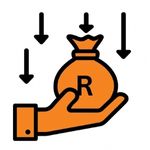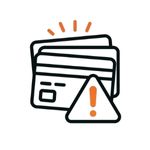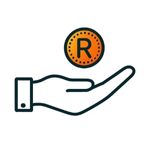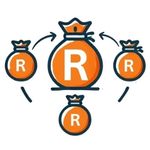
Payday loans have become increasingly common in South Africa, offering fast access to cash for individuals facing unexpected expenses or short-term gaps between salaries. While these loans are often marketed as a quick fix for urgent financial needs, they carry some of the highest costs of any form of borrowing and can place borrowers at risk of long-term financial difficulties. Understanding how payday loans work, the potential impact on your credit profile, and the alternatives available is essential before deciding whether this form of short-term credit is the right choice for you.
Key Takeaways
- High Costs and Debt Risk: Payday loans in South Africa provide quick access to funds but come with very high interest rates and fees, often trapping borrowers in a cycle of repeated borrowing and mounting debt.
- Impact on Credit Profile: Paying on time may not harm your credit record, but missed repayments or frequent applications can lower your score and make future credit more expensive.
- Safer Alternatives Available: Options such as salary advances, credit cards managed responsibly, microloans from NCR-registered lenders, and debt consolidation loans offer less risky solutions than payday borrowing.
What Are Payday Loans?
Payday loans are a type of short-term borrowing that must usually be repaid within a few weeks, often around 30 days. They are designed to act as temporary financial relief, covering expenses when personal funds are depleted and the next salary payment has not yet arrived. In South Africa, individuals can complete an application for a payday loan online, with approved funds typically transferred into the borrower’s bank account within only a few hours.

The Cost Of A Payday Loan
Since payday loans are designed for small amounts that must be repaid shortly after borrowing, it is easy to assume that they carry little risk. In reality, the charges and interest rates attached to these loans are among the highest of any form of credit, making them one of the most expensive ways to borrow money. This means many people find themselves unable to meet the repayments when they fall due. While some lenders provide extensions, these only increase the length of time you owe money, leading to even greater costs in the form of extra fees and interest.
What often follows is a cycle of debt, where a person borrows again just to settle the original lender. Given the steep charges, payday loans do little to solve ongoing cashflow difficulties and instead increase financial strain for those already under pressure. Taking another loan to cover the first one only adds to your expenses and creates further stress in the following month. In many cases, the repayment of a payday loan can drain the funds you had set aside for other commitments, such as debit orders. When a debit order fails, it almost always results in a negative entry on your credit profile, which lowers your credit score and makes any future borrowing more expensive.
About Arcadia Finance
Apply for your loan easily with Arcadia Finance. Compare offers from 19 trusted lenders, all registered with South Africa’s National Credit Regulator. Enjoy zero application fees and a simple, transparent process designed for your financial needs.
Do Payday Loans Affect Your Credit Score?
If you are wondering whether payday loans influence your credit score or have questions such as how long they remain on your record or whether you can apply for one with poor credit, the answer is not straightforward. The effect of payday loans online in South Africa depends on several factors, and understanding these can help you see how they might shape your overall financial standing.
The effect of a payday loan on your credit profile can differ depending on how it is handled. Below are some important points:
- Repayment On Time: When a payday loan is fully repaid by the agreed date, it usually does not harm your credit score. In some cases, it can even reflect positively by showing that you are capable of managing short-term borrowing responsibly.
- Negative Perception: Certain lenders hold a cautious view of payday loans. The use of these loans may be regarded as a sign of financial pressure, and this perception could influence how potential lenders assess your creditworthiness.
- Hard Searches: Each application for a payday loan requires a hard search on your credit report. This type of search can lower your score for a short period. The loan will also appear in your credit history, and if you take out several payday loans, it can signal risk to other lenders reviewing your profile.
- Missed Payments: Failing to repay a payday loan on time can have a serious effect on your credit score. Late or missed payments often result in added charges, and in cases where the debt is passed to a collection agency, the damage to your credit record becomes more severe.
Advantages and Disadvantages Of Payday Loans In South Africa
Pros of Payday Loans
- Quick Access To Funds: Despite the high interest rates and additional fees that come with payday loans, they do offer certain advantages. One of the main reasons borrowers consider them is the speed at which money becomes available. These loans provide fast access to cash, which can be useful for South Africans who face urgent financial needs such as covering unexpected bills or short-term expenses.
- No Credit History Required: Another aspect that makes payday loans appealing is that they generally do not require a formal credit check. This means individuals with a poor credit record or no history at all can still apply and have a reasonable chance of approval. For many, this opens a borrowing option that traditional banks may not provide.
- Simple Qualification Process: A further advantage is that payday loans are often easy to qualify for. As long as the applicant has a regular income and a valid bank account, most lenders are willing to provide access to funds. This straightforward process has made payday loans a common choice for people who may not meet the stricter requirements of conventional bank loans.
Cons of Payday Loans
- Debt Cycle Trap: One of the biggest risks of payday loans, especially for individuals with poor credit histories, is the danger of falling into a repeated borrowing cycle. This typically occurs when a borrower takes one loan, struggles to settle it on time, and then secures another payday loan to cover the first, creating an ongoing loop of debt that becomes increasingly difficult to escape.
- High Interest Charges: Payday loans often come with very high interest rates, which place additional strain on borrowers. The steep cost of borrowing means many people cannot pay off the full balance within the short repayment period. As a result, they may take out another loan to meet the repayment, which only increases the amount owed over time.
- Penalties For Missed Payments: These loans usually include strict fees for late or missed instalments. For borrowers already facing financial difficulties, even one missed repayment can add a heavy financial burden. The accumulation of these charges makes the original debt larger and more difficult to manage, increasing the likelihood of continued borrowing.
- Negative Effect On Credit Score: If repayments are missed or multiple payday loans are taken to cover existing debt, the borrower’s credit record can be severely damaged. A lower credit score makes it harder to qualify for more affordable forms of credit in the future, leaving borrowers dependent on costly short-term lending options.
Alternatives to Payday Loans
When money runs short before payday, a payday loan may appear to be the quickest option. However, there are safer financial solutions that can provide relief without the high risks associated with payday lending.

Salary Advances or Earned Wage Access
Some South African employers allow staff to access part of their earned wages before the official payday. This arrangement, often called a salary advance or earned wage access, gives employees the opportunity to make use of wages they have already worked for rather than borrowing against future income.
Services such as Advance Pay allow workers to request smaller amounts that are then deducted from their next salary. TymeAdvance provides a similar facility with advances that are interest free and repaid when the monthly salary is processed. These advances are not categorised as loans, and instead of accumulating interest, they involve a straightforward transaction fee. For many workers this approach offers a safer and more predictable way to manage unexpected expenses, provided it is not used excessively.

Credit Cards When Managed Properly
Credit cards can be a more affordable alternative if they are used responsibly. Many cards include a short period where purchases do not incur interest, provided that the balance is settled in full by the due date. Paying the balance on time avoids expensive charges and helps keep borrowing costs lower than those linked to payday loans. However, failing to make full repayment each month can quickly result in additional fees and higher interest rates. This makes it important to limit use to genuine emergencies and to remain disciplined about repayment.

Microloans from NCR-Registered Lenders
Microloans provide another option for individuals in need of smaller sums. The crucial point is to borrow only from providers who are registered with the National Credit Regulator. These lenders are subject to legal limits on the fees and interest they can charge, offering more protection than unregulated payday lenders. In some cases, microfinance organisations are also willing to assist individuals who have weaker credit records, offering more flexible terms than those attached to payday loans. Borrowers should still take time to check that a lender appears on the NCR’s official register and carefully review the repayment conditions before proceeding.

Debt Consolidation Loans
For individuals already managing several debts at the same time, a debt consolidation loan can bring financial relief. This type of loan combines multiple credit obligations into a single repayment plan, often at a lower interest rate. Banks and non-bank lenders in South Africa provide such products, with institutions like African Bank and Bayport offering consolidation loans that allow borrowers to replace several accounts with one structured repayment. Consolidation makes budgeting easier and may reduce overall costs, but it requires discipline. Taking on new debt while managing a consolidation loan will only increase financial pressure, so borrowers need to be committed to changing their financial habits.
Conclusion
Payday loans may appear to provide fast relief for short-term financial gaps, but they carry significant risks in the form of high costs, strict penalties, and potential long-term damage to your credit record. For South Africans facing cashflow pressure, it is vital to weigh up these drawbacks against safer alternatives such as salary advances, NCR-registered microloans, credit cards used responsibly, or debt consolidation loans. Considering all available options before committing to a payday loan can help prevent unnecessary financial strain and support more stable money management in the future.
Frequently Asked Questions
Most payday loans in South Africa are for smaller amounts, often ranging between R500 and R8,000, depending on your income and the lender’s criteria.
Payday loans are short-term by design and usually must be repaid within 30 to 45 days, though some lenders may allow limited extensions with extra fees.
Not necessarily. If you repay the loan in full and on time, your credit score should not be harmed. However, missed payments or frequent applications can lower your score and make future borrowing more difficult.
Yes. All legal payday loan providers must be registered with the National Credit Regulator (NCR) and follow the rules of the National Credit Act, which caps interest rates and fees. Borrowing from unregistered lenders is unsafe and often illegal.
Alternatives include asking your employer for a salary advance, using a credit card and paying the balance on time, applying for a microloan from an NCR-registered lender, or consolidating existing debts into one repayment plan with a debt consolidation loan.





